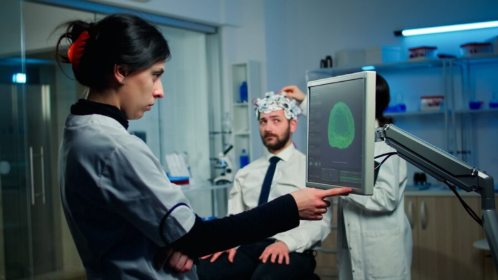Doping is a scourge that has plagued the global sports industry for decades. While most surveys put the prevalence of doping in competitive sports at under 5%, some findings indicate that up to 73% of professional athletes test positive for banned substances in certain places.
Advancements in forensic intelligence continue to play the biggest role in combating doping in competitive sports.
However, it turns out that polygraph exams may also ramp up the fight against the vice.
Read below as we expound on the role of lie detector tests in fostering fair play in sports.
How Polygraph Tests Ensure Fair Play in Sports

1. Screening for Banned Substances
Every athlete desires to compete on a level playing field. When everyone plays by the rules, athletes can proudly celebrate their wins and graciously accept their losses.
However, doping allegations have continually riddled the sporting fraternity, casting aspersions on the credibility of competitive championships. Besides using forensic science to investigate doping claims, some sporting federations are now turning to polygraph tests.
By querying athletes on their history with banned substances, a lie detector test can help unearth hints of doping. Test results that suggest doping are then subjected to further scrutiny, accelerating the screening process for banned substances.
2. Reinforcing Credibility in Athletics
Doping allegations don’t fade away easily. In sporting federations where the use of banned substances is rampant, separating genuine wins from legitimate losses can be extremely challenging.
Fortunately, that’s one of the issues polygraph exams seek to address.
Sporting leagues can request their players to undergo lie detector tests in selected locations before participating in competitive sports. The idea is to ensure the results turn out negative for doping, thereby reinforcing athletic credibility.

3. Upholding High Integrity Standards
Having athletes submit to polygraph tests isn’t just intended to detect signs of doping. It also allows federations to uphold the highest integrity standards.
When athletes understand that they might be subjected to a polygraph examination, they’ll always want to be on their best behavior.
Even those who occasionally dope will shun banned substances for fear of failing the lie detector tests.
4. Promoting Sportsmanship
Winning as a team requires seamless collaboration and consistent synergy.
Unfortunately, many players lack team spirit. They’d rather bask in the glory of their personal efforts than have the whole team take the credit for collective achievements.
Using polygraph tests, club managers can learn about how players feel about themselves and their teammates. Arsenal winger Bukayo Saka is one of the latest high-profile athletes to have taken a lie detector test designed to gauge his perception of his personal and team achievements.

Case Studies of Polygraph Tests in Sports
The World Natural Bodybuilding Federation (WNBF) immediately comes to mind when discussing sporting leagues that have since integrated polygraph exams into their anti-doping tests.
Since 1989, the WNBF has administered lie detector tests to uphold its strict anti-doping standards. After facing doping allegations for years, the federation incorporated polygraph exams into its operations to restore its reputation.
Conducting Polygraph Tests in Sports
While the procedure may vary slightly, most polygraph exams begin with pre-test interviews.
Pre-tests involve establishing prior engagement with sporting participants to inform them of plans to have them undergo lie detector tests. It lays the ground for the exam and helps both parties – polygrapher and prospective examiner – build a rapport.
Note that in jurisdictions where polygraph results are legally admissible, examinees must wilfully submit to the examination. But considering that a federation’s credibility is on the line, players who decline lie detector tests may still be subjected to more rigorous drug screening procedures before they’re allowed to participate in a competitive match.
The next step is the in-test phase, which entails asking relevant questions.
Athletes are queried on whether they’ve used banned substances before and how long ago that was. There may also be questions on the examinee’s relationship with their teammates.
Next comes the post-test phase, where polygraphers interview the examinee before preparing a comprehensive report of the test results. For instance, an examinee may be asked to explain some of their responses.
Finally, a polygrapher will analyze all the pre-test, in-test, and post-test responses to prepare a detailed report. The report is then shared with relevant parties for further action.

Level the Athletic Playing Field with Polygraph Tests
The use of polygraph exams in competitive sports may not have garnered mainstream global recognition yet. However, in sporting federations where lie detector tests are standard procedures, the assessments have significantly minimized doping and promoted fair play among professional athletes.
By administering a lie detector test, club executives and team managers can understand if their players are using banned substances.
Polygraph tests may also provide valuable insights into how players feel about each other, helping foster team synergy and maximize results.






